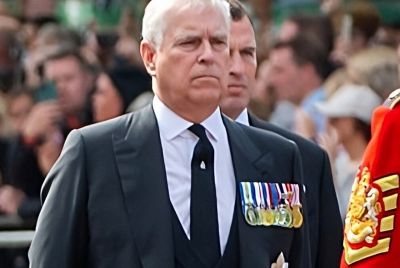Who is Marcus Farkana: UK Teen Jailed in Dubai for Holiday Fling With 17-Year-Old Tourist Finally Free
The UK teen jailed in Dubai is released following a royal pardon, raising questions over travel risks and morality laws in the UAE.

Marcus Fakana was 18 and on a family break in Dubai last August when he began a consensual relationship with a 17‑year‑old British tourist he met at his hotel.
Under UK law the pair were only months apart in age and within the age of consent, yet in the United Arab Emirates any sexual contact with a person under 18 is a criminal offence.
The girl's mother discovered messages after returning home and alerted Dubai police, who arrested Fakana at his hotel on 2 September 2024.
One‑Year Sentence in al‑Awir Prison
Prosecutors charged the Tottenham teenager with sexual activity with a minor.
As reported by BBC, Fakana was convicted in December and sentenced to one year in al‑Awir prison on the outskirts of the city.
Campaign group 'Detained in Dubai' said the court could have opted for a fine and deportation but chose jail instead, branding the punishment 'disproportionate'.
A Growing Pressure Campaign
Fakana's family hired legal specialists and enlisted 'Detained in Dubai' chief executive Radha Stirling, who argued that the case highlights how easily tourists can fall foul of the UAE's strict morality laws.
She urged the Foreign, Commonwealth & Development Office (FCDO) to intervene more actively and criticised the lack of robust support.
If Starmer & Lammy can’t resolve a basic diplomatic matter like the unfair & lengthy incarceration of a British teen, it says they are weak and desperate. How can the UK government be relied upon to represent Britain internationally, if it can’t solve Marcus Fakana's plight?!
— Radha Stirling (@RadhaStirling) January 4, 2025
The case sparked cross-party concern, with Labour leader Sir Keir Starmer describing Marcus's situation as 'extremely distressing.'
Meanwhile, local MP David Lammy faced criticism from campaigners for what they described as limited engagement in supporting Fakana's cause.
Eid Pardon and Quiet Return
Nine months into his sentence Fakana was included in an Eid al‑Adha pardon issued by Dubai's ruler, Sheikh Mohammed bin Rashid Al Maktoum, a customary gesture of clemency marking the religious holiday.
He was released from prison on 1 July and flew back to Heathrow two days later.
Detained in Dubai's CEO confirmed he is 'home safe, surrounded by those who love him'. The Foreign Office confirmed it had provided consular assistance but declined to detail its private representations.
What Happens Next?
Fakana has not yet made a public statement since his return to the UK. However, his legal representatives have indicated that he is focusing on recovery and resuming his studies.
Under UK law, the relationship at the centre of the case would not have constituted a criminal offence, and as such, he is not expected to face any further legal proceedings at home.
Stirling has urged the UK government to reassess its travel advisories for the Gulf region.
She told media outlets that cases like Fakana's demonstrate how British nationals can unknowingly breach local laws abroad.
Lessons for Travellers
Legal experts warn that consensual relationships that are perfectly lawful at home can lead to criminal charges in the Gulf. They advise travellers to read FCDO advisories carefully and remember that even private behaviour can attract prosecution if discovered.
For Fakana, the priority is rebuilding his life and resuming his college studies. But his case remains a stark reminder of the risks Britons face under foreign morality statutes and of how quickly a holiday romance can become an international legal nightmare.
© Copyright IBTimes 2025. All rights reserved.





















